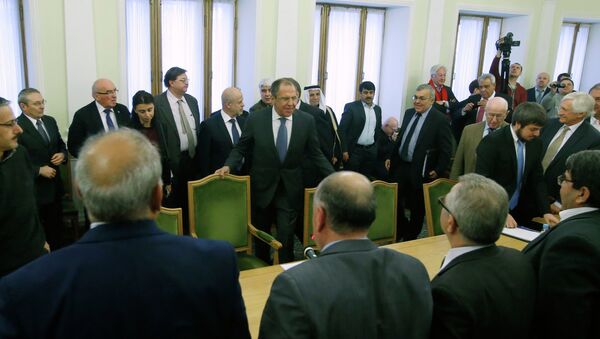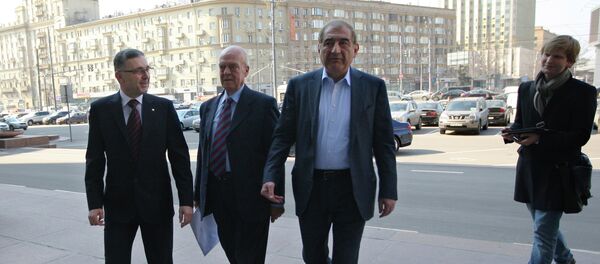“The main outcome of the intra-Syrian consultations is the Russian agreement to mediate a number of issues, including the political issues [who will participate, what will the agenda be, what will be discussed and so on]. Also, Russia agreed to mediate in talks regarding humanitarian issues. We, the opposition, will hand over all our data on the arrested people and on those held captive, and the Syrian government will send it’s reply via Russia,” Aita said.
The second round of talks between government and opposition parties of Syria may take place in Moscow in late February or early March, a Syrian opposition delegate at the most recent talks told RIA Novosti on Friday.
Samir Aita, a member of the Syrian Democratic Forum opposition party, said that, "The next meeting in Moscow may take place approximately in a month, in the end of February-beginning of March. The sides have agreed on that, the two sides, and the moderator," Aita said.
Aita said the delegation of Syrian President Bashar Assad's government previously refused to discuss humanitarian issues with the country's opposition. As a solution, Russia offered to mediate these topics, including humanitarian problems, in the dialogue between the warring parties.
Russia will also help negotiators agree on who will attend the next talks, and lay out the agenda of the future meetings.
"The main outcome of the intra-Syrian consultations is the Russian agreement to mediate a number of issues, including the political issues. Also, Russia agreed to mediate in talks regarding humanitarian issues. We, the opposition, will hand over all our data on the arrested people and on those held captive, and the Syrian government will send it's reply via Russia," Aita told RIA Novosti.
The first talks took place in Moscow on January 26-29. Representatives from the Syrian government and opposition parties sat down at the negotiating table with the UN special envoy for Syria to seek a way out of the four-year civil war.
Over 200,000 people have died in the ongoing war. In the past year, the conflicting parties have come under pressure to end the bloodshed amid the rise of the violent Islamic State insurgency.


